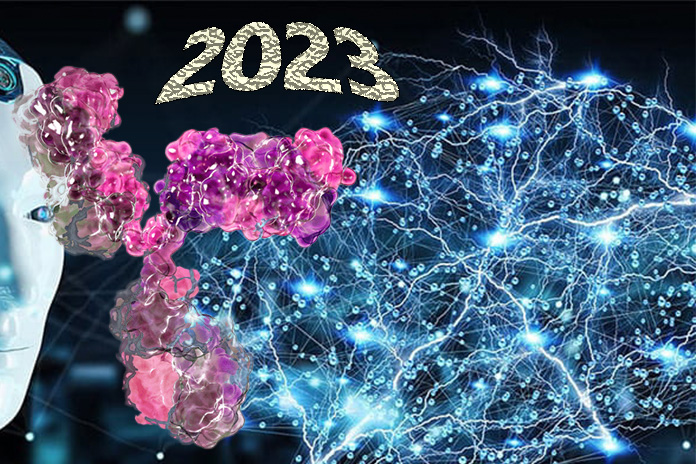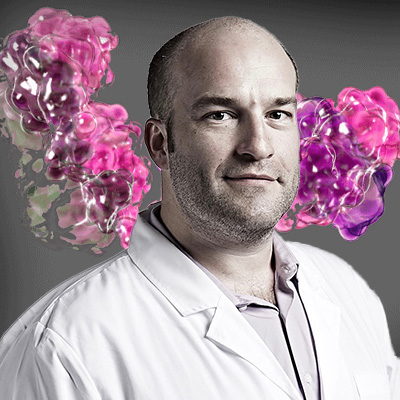
The advent of Artificial Intelligence has helped in the discovery of new approaches to treating previously hard-to-cure diseases. Jerome Boyd-Kirkup, PhD talks about the opportunities he sees in the new year and beyond for his company, Hummingbird Biosciences.
Coming out of a pandemic, and into a series of challenging global and local situations — logistics issues, inflation, rising costs, workforce evaluation, disruptive technologies, clouded judgement etc. etc. — how will 2023 shape up?
STORM-ASIA talks to industry players about their observations and approach to the new year. The interviews will be featured over the month of December.

Chief Scientific Officer, Hummingbird Bioscience
Humming Along With Purpose
While the COVID pandemic has created various challenges, we have seen increased regulatory agility in new drug development and stronger government support for the life sciences sector, says Jerome Boyd-Kirkup, PhD.
The company he co-founded, Hummingbird Bioscience, is a data-driven and Artificial intelligence (AI)-enabled precision biotherapeutics company developing a broad pipeline of new biologic (protein and peptide-based medicines) and precision therapeutics for the treatment of cancer and autoimmune disease.
AI and machine learning have revolutionised drug discovery. While AI has helped discover small molecules, it is also transforming discovery in biologics.
Following on from the pandemic, the streamlining of drug regulatory processes with virtual oversight and audit is now common in many regions. The move to phase 1 and 2 clinical trials is now much quicker than before the pandemic.
“The pandemic has provided governments the urgency to have strong home-grown life sciences and biotech capabilities that have strengthened support for the sector,” says Boyd-Kirkup.
Singapore has committed to invest about 1% of its GDP in research, innovation, and enterprise (RIE). As part of RIE2025, the Singapore government has committed S$25 billion. One priority area of RIE2025 is advanced manufacturing — including biopharma production.
The Singapore government is also providing therapeutics development support under schemes such as the Singapore Therapeutics Development Review and Central Gap. Alongside the Pharma Innovation Programme Singapore (PIPS), a new programme, BIOPIPS, will be started to enable more companies to work on pre-competitive co-innovation.
External Factors
Various factors, including decades-high inflation, COVID-19’s persistent influence, and Russia-Ukraine tensions have contributed to an unfavourable global economic climate where many investors are being extremely cautious about investing at the moment.
“Early-stage biotech companies require funding from outside sources in order to develop innovative new drugs and conduct clinical trials,” Boyd-Kirkup emphasises.
“In the current climate, we are looking closely for signs of macroeconomic recovery which would spell good news for future investment in the biotech sector.”
Using AI To Further Research
As an AI-native biologics company, where AI is central to its drug discovery and development process, Hummingbird Bioscience is looking forward to seeing how new developments in AI can further revolutionise the drug industry.
Far too many targets, conditions, and biological conundrums go untargeted, untreated, and unsolved.
“At Hummingbird Bioscience we work to realise the strong potential of AI, through harnessing the tremendous amounts of invaluable scientific data and our deep understanding of human disease. With the insights we derive, we aim to transform the therapeutic landscape for hard-to-treat diseases and bring hope that our data-driven precision biotherapeutics can solve some of the most difficult medical challenges we are facing today.”
In a recent analysis by Pharma Intelligence In Vivo by Boston Consulting Group that featured Hummingbird Bioscience among the list of AI-native biologics companies, AI in biologics discovery represent an emerging frontier, with AI-native biologics companies experiencing rapid pipeline growth over the past decade and a year-on-year growth rate of approximately 40%.
More views and opinions coming up.
Related articles:
Key Opportunities and Challenges in 2023 — Dr Stephen Riady
Framing His 2023 Vision — Yang Wah Kiang
Catch The Rising Sun Next Year — Ku Swee Yong
What Do The Signals Flag For Next Year? — Jamus Lim
Knowledge Lights The Way In Dark Times — Dr Tan Bee Wan
Two Areas To Improve Legal Services — Adrian Tan
Connecting With People — Dr Sanjay Kuttan
Injecting Optimism Into The Aesthetics Business — Dr Yanni Xu
Everything In Moderation For 2023 — Gerard Ee
2023: Another Year Of Uncertainty For F&B? — Anil Goswami, Loh Lik Peng, Thomas Choong, KF Seetoh



















